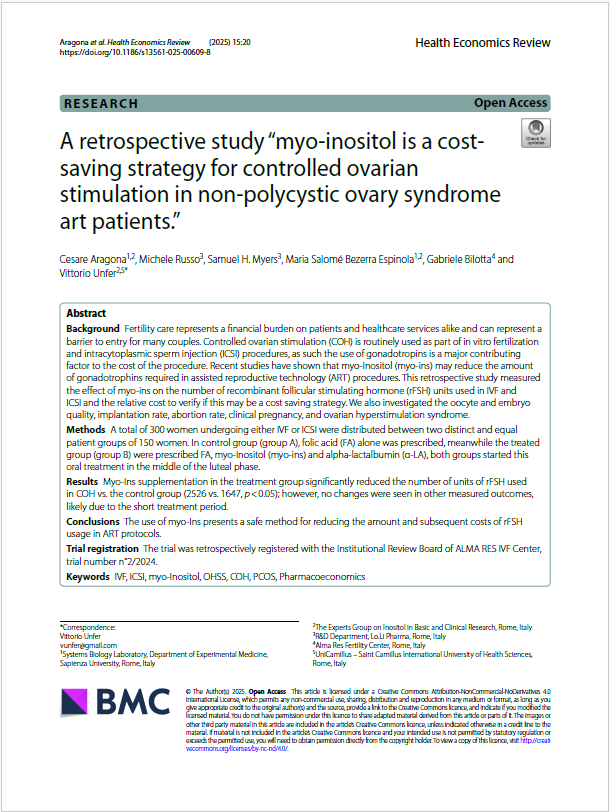Authors:
Aragona C, Russo M, Myers SH, Espinola MSB, Bilotta G, Unfer V.
Background: Fertility care represents a financial burden on patients and healthcare services alike and can represent a barrier to entry for many couples. Controlled ovarian stimulation (COH) is routinely used as part of in vitro fertilization and intracytoplasmic sperm injection (ICSI) procedures, as such the use of gonadotropins is a major contributing factor to the cost of the procedure. Recent studies have shown that myo-Inositol (myo-ins) may reduce the amount of gonadotrophins required in assisted reproductive technology (ART) procedures. This retrospective study measured the effect of myo-ins on the number of recombinant follicular stimulating hormone (rFSH) units used in IVF and ICSI and the relative cost to verify if this may be a cost saving strategy. We also investigated the oocyte and embryo quality, implantation rate, abortion rate, clinical pregnancy, and ovarian hyperstimulation syndrome.
Methods: A total of 300 women undergoing either IVF or ICSI were distributed between two distinct and equal patient groups of 150 women. In control group (group A), folic acid (FA) alone was prescribed, meanwhile the treated group (group B) were prescribed FA, myo-Inositol (myo-ins) and alpha-lactalbumin (α-LA), both groups started this oral treatment in the middle of the luteal phase.
Results: Myo-Ins supplementation in the treatment group significantly reduced the number of units of rFSH used in COH vs. the control group (2526 vs. 1647, p < 0.05); however, no changes were seen in other measured outcomes, likely due to the short treatment period.
Conclusions: The use of myo-Ins presents a safe method for reducing the amount and subsequent costs of rFSH usage in ART protocols.

